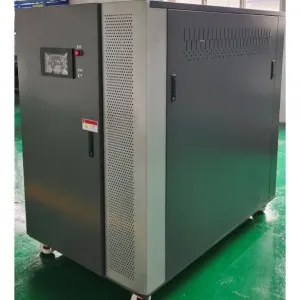- Afrikaans
- Albanian
- Amharic
- Arabic
- Armenian
- Azerbaijani
- Basque
- Belarusian
- Bengali
- Bosnian
- Bulgarian
- Catalan
- Cebuano
- China
- China (Taiwan)
- Corsican
- Croatian
- Czech
- Danish
- Dutch
- English
- Esperanto
- Estonian
- Finnish
- French
- Frisian
- Galician
- Georgian
- German
- Greek
- Gujarati
- Haitian Creole
- hausa
- hawaiian
- Hebrew
- Hindi
- Miao
- Hungarian
- Icelandic
- igbo
- Indonesian
- irish
- Italian
- Japanese
- Javanese
- Kannada
- kazakh
- Khmer
- Rwandese
- Korean
- Kurdish
- Kyrgyz
- Lao
- Latin
- Latvian
- Lithuanian
- Luxembourgish
- Macedonian
- Malgashi
- Malay
- Malayalam
- Maltese
- Maori
- Marathi
- Mongolian
- Myanmar
- Nepali
- Norwegian
- Norwegian
- Occitan
- Pashto
- Persian
- Polish
- Portuguese
- Punjabi
- Romanian
- Russian
- Samoan
- Scottish Gaelic
- Serbian
- Sesotho
- Shona
- Sindhi
- Sinhala
- Slovak
- Slovenian
- Somali
- Spanish
- Sundanese
- Swahili
- Swedish
- Tagalog
- Tajik
- Tamil
- Tatar
- Telugu
- Thai
- Turkish
- Turkmen
- Ukrainian
- Urdu
- Uighur
- Uzbek
- Vietnamese
- Welsh
- Bantu
- Yiddish
- Yoruba
- Zulu
Jul . 27, 2024 21:15 Back to list
Exploring the Benefits and Efficiency of Gas and Oil Boilers for Home Heating Solutions
Gas and Oil Boilers A Comprehensive Overview
Gas and oil boilers are essential components in modern heating systems, providing reliable and efficient solutions for residential and commercial spaces. They are primarily used to heat water or produce steam for various purposes, such as space heating and hot water supply. With an increasing focus on energy efficiency and environmental sustainability, understanding the differences between these two types of boilers is crucial for homeowners and businesses alike.
Gas Boilers
Gas boilers are one of the most common types of heating systems used today. They rely on natural gas or propane as their fuel source, making them highly efficient and relatively cleaner than oil-fired systems. One of the primary advantages of gas boilers is their quick and easy installation. These systems often require less space than oil boilers, making them ideal for urban environments or homes with limited storage capacity.
The efficiency of gas boilers is measured by their Annual Fuel Utilization Efficiency (AFUE) rating, which indicates how much of the fuel is converted into usable heat. Many modern gas boilers achieve AFUE ratings of 90% or higher, meaning they waste very little energy. Additionally, advancements in technology, such as condensing boilers, have further improved efficiency by utilizing exhaust gases to preheat incoming water.
Gas boilers also offer convenience in terms of fuel supply. Natural gas is typically delivered directly to homes through pipelines, ensuring a consistent and reliable source of energy. Propane, on the other hand, may require periodic refilling, but it still offers greater convenience than oil, often not requiring as much storage space.
Oil Boilers
gas and oil boiler

Oil boilers, while less common than gas systems, are still widely used, particularly in areas where natural gas is not readily available. These systems use heating oil as their fuel source, which is stored in a tank on or off the property. One of the primary benefits of oil boilers is their heating capability; they can produce more heat per unit of fuel than gas boilers, making them suitable for larger homes or colder climates.
Despite their efficiency in heating, oil boilers often have lower AFUE ratings compared to gas boilers. Older models may have ratings as low as 70-80%, while modern oil boilers can reach around 85% efficiency. However, they still do not match the performance of the latest gas options. Additionally, the storage of heating oil and the delivery logistics can pose challenges, particularly in emergency situations or during severe weather conditions.
One significant aspect that differentiates oil boilers from gas boilers is their environmental impact. Oil combustion produces higher levels of carbon emissions and other pollutants than natural gas, making gas a more environmentally friendly choice. This environmental consideration has led many homeowners to switch from oil to gas systems, especially with the growing emphasis on reducing carbon footprints.
Conclusion
In summary, both gas and oil boilers have their advantages and disadvantages, and the choice between them largely depends on individual needs, geographic location, and environmental concerns. Gas boilers are typically more efficient, easier to install, and have a lower environmental impact, making them a popular choice for many homeowners. Conversely, oil boilers may still be a viable option in areas without natural gas access, particularly for those needing robust heating solutions.
As technology continues to advance, the heating industry is evolving. Homeowners should stay informed about new developments, such as hybrid systems that combine both gas and oil capabilities or renewable energy options that could replace traditional boilers in the future. Ultimately, the decision should align with both practical needs and a commitment to sustainability.
-
8mm Thin-Walled Cast Steel Manhole Cover Pallet Bottom Ring | Durable
NewsAug.04,2025
-
Premium Cast Iron Water Main Pipe: Durable, Corrosion-Resistant
NewsAug.03,2025
-
Durable Cast Iron Water Mains | AI-Optimized Systems
NewsAug.02,2025
-
High-Efficiency Propane Boiler for Baseboard Heat | Save Energy
NewsAug.01,2025
-
Premium Source Suppliers for Various Gray Iron Castings
NewsJul.31,2025
-
Durable Cast Iron Water Main Pipes | Long-Lasting
NewsJul.31,2025


